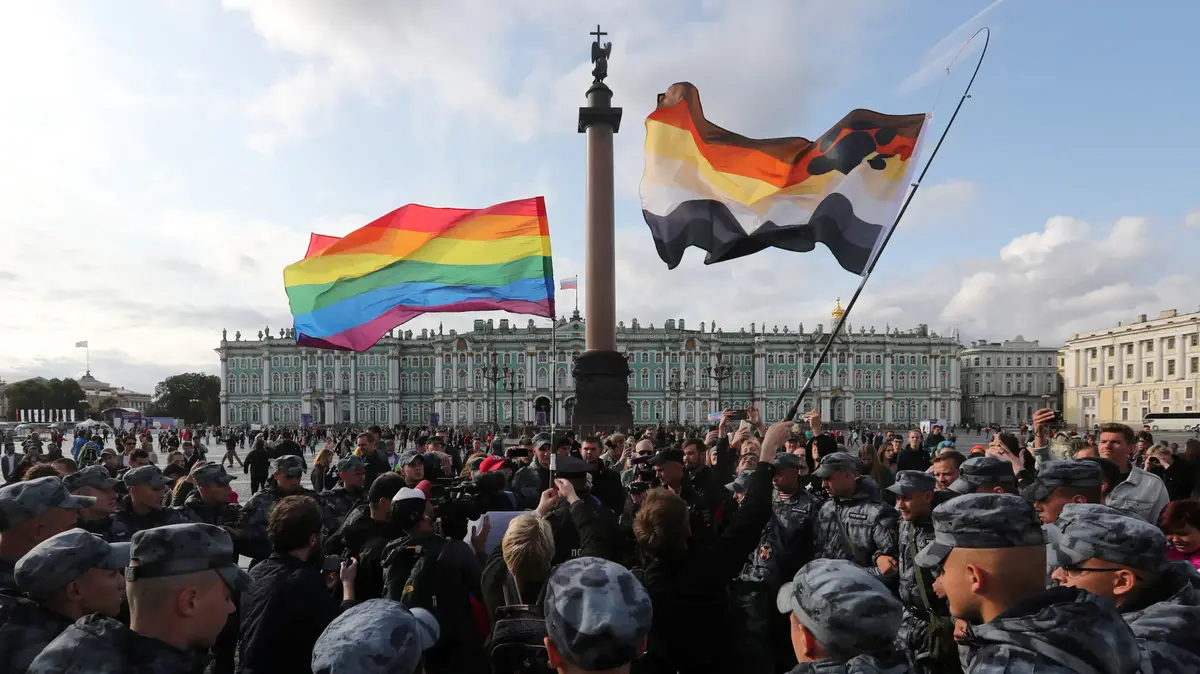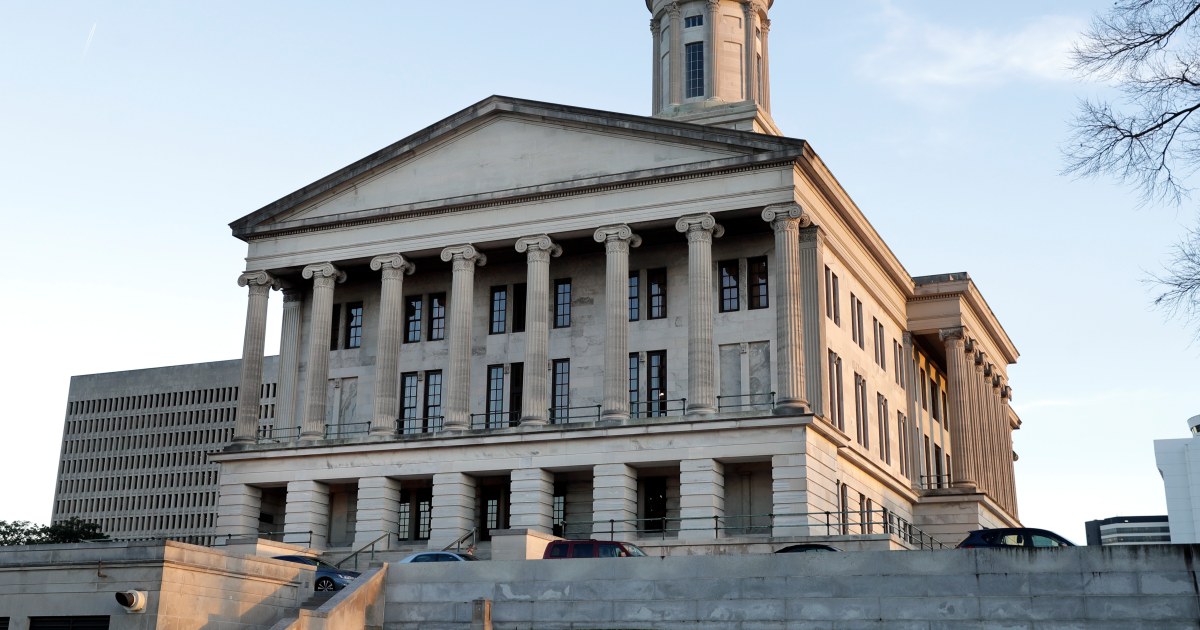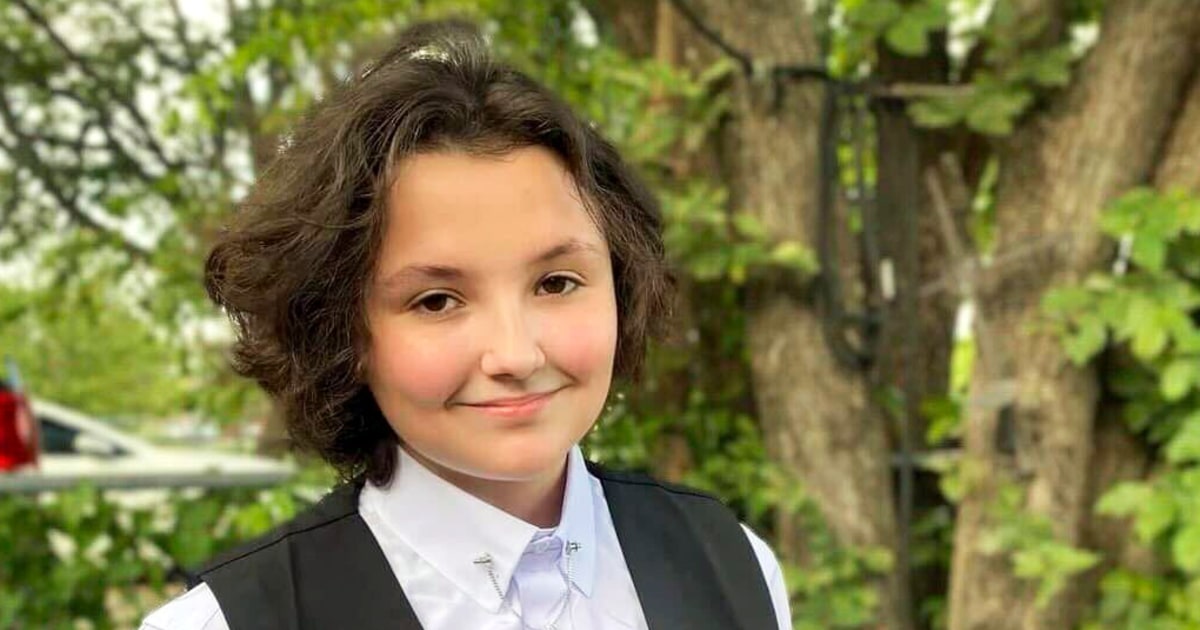Enlarge image
For queer people, the situation in Afghanistan has been life-threatening since the Taliban returned
Photo: Oliver Byunggyu Woo / EyeEm / Getty Images
One of the atrocities of recent weeks in Afghanistan is that the people on the ground who dare to speak, who report in interviews about how dirty they are, who call for help in the media, usually have to go without names.
Because, if the reports revealed their real names, their real professions, their real age, the Taliban would be more likely to find people, who are already searching social media profiles, websites and homes for opponents, Afghans Afghans who live a life that, according to the logic of extremists, must be punished.
The man this story is supposed to be about sent SPIEGEL a copy of his passport, the link to his Instagram profile, where he has several thousand followers.
His employment contract, his WhatsApp number.
None of this can be told in detail here.
It would be life-threatening for him.
Because Nadim, as he should now be called, is gay.
Homosexuals punished with death, stoned, shot
Nadim says: “When the Taliban came to Kabul that Sunday, I was at work.
Somebody sent me a message:
You are here.
You have to hide
.
I was nervous.
Terribly nervous.
If they catch me now, I thought they'd kill me. "
Nadim, between 30 and 40 years old, lives in Kabul.
One can say that he has a good job there in the cosmetics sector, he has a lot to do with beauty, he loves his job.
He has a wife and several children.
He says many homosexuals in Afghanistan are married.
Because they are forced to do so by their family.
Or because it is their protection, their life insurance: Because people think that a man who has a wife cannot love a man.
When Nadim received the news of the return of the Taliban that Sunday, he threw himself on typical men's clothes that he would not normally wear. A pair of jeans, a shirt and a scarf that he pulls down over his face. Sometimes he has a little make-up at work, nobody should see that now, he thinks. Then he leaves his place of work and goes home, but he can no longer remember the way home because, as he says, he was foggy.
In the Taliban's Sharia interpretation, homosexuality is strictly forbidden and punishable by death.
Queer people are shot, stoned;
People like Nadim have been in massive danger since August 15, 2021, when the Taliban came and took Kabul in a few hours.
The Afghan author and activist Nemat Sadat, who lives in the USA, wrote on Twitter that the Taliban wanted to "exterminate queer people and wipe them out of Afghan society."
It is estimated that around five percent of the 38 million Afghans belong to the queer community.
There are no statistical surveys, because as lesbian,
Outing gay, trans or intersex was threatening even before the Taliban came - when the international troops were still in the country.
Here, too, queer people were brought to justice and imprisoned for years.
In Afghan society they are discriminated against and marginalized.
Family has to change sleeping place every few days
Nadim says he is now terrified that his wife and children are also in danger because of his sexual orientation.
They left their home and will not go back there.
Now they all sleep with his parents, with his sister, with friends.
They change their sleeping place every few days.
He wants to get out of the country with them, like the many other thousands of Afghans who are desperately trying to get to the airport these days to make it on an evacuation list. In many countries it is unclear whether belonging to the queer community in Afghanistan is a reason for leaving and asylum. Canada, for example, has promised to take in 20,000 Afghans and expressly includes queer people.
Nadim fell in love with an older boy for the first time at school, maybe he was 14 or 15.
When his parents caught them together, Nadim was beaten and locked in the house.
"Why are you doing this?" Asked the mother.
Nadim had no answer.
He had no name for what he was, no internet access, no Google, no chats.
No one to ask.
He just knew that he was somehow drawn to men.
His mother said he was sick.
After school, several men abused him, blackmailed him with the sentence: If you don't go on with this, we'll tell your parents about it.
At some point Nadim swallowed sleeping pills because he couldn't take it any longer.
He survived, scored
finally a doctor who helped him because he said: You are not sick.
You are gay
You have to get away from your family.
Nadim went to Kabul, the big city.
In Kabul, Nadim finds the niches in which he can be who he is.
He says that even if a lot has to be hidden, you can recognize yourself on the street.
There are certain codes that the queer community can read.
This is how Nadim finds others who are like him.
He falls in love.
He has a boyfriend.
He separates.
He misses.
How love is, he says.
He says, “I think everyone in my family, including my wife, knows I'm gay.
But we don't talk about it.
We have settled down quite well with it. "
Nadim is now trying to go out on the streets as little as possible.
He can no longer go to work.
He doesn't even try to chat with the man he's calling his boyfriend.
It would be too risky for both of them.
Nadim turns to AIDS help in Frankfurt
The little freedoms he has taken in Kabul over the past few years - colored eyelashes, an earring, and tinted hair - have suddenly collapsed.
When Nadim does have to go out to the door, for example, he tries to walk like the other men, to move like them.
Nadim says that since the Taliban came back, he felt like he missed himself.
If the question of who you are is not only negotiated with oneself, but above all in exchange with the environment, then the Taliban have already robbed many people of an existential right: to their own identity.
The whole conversation with Nadim can only take place because Hamid has agreed to translate.
Hamid is also Afghan, also homosexual.
Hamid and Nadim know each other from their time together in Kabul.
Hamid had not endured the discrimination in Afghanistan years ago.
He fled on foot to Pakistan, Iran, Turkey.
At some point Germany.
He's been here for seven years.
Geriatric nurse for an elderly woman with dementia.
He goes for
LGBTQ rights on the streets. He can be in this story by his real name. “I'm free in Germany. I have already been beaten here too. But here I can defend myself. There are laws, there are the police. I have protection. As a homosexual man in Afghanistan, you always have to be silent. If you are beaten bloody, you must not defend yourself. "
The three of us are on the group WhatsApp call.
Nadim tells, Hamid translates.
Nadim says again how urgent it is that he get out of Afghanistan as soon as possible.
With his family.
He also wants to go to Germany.
He turned to the Rainbow Refugees organization, which, together with Aids-Hilfe in Frankfurt am Main, is now helping the family to get on an evacuation list.
Nadim says he doesn't want to die, he finally wants to show everyone who he is.
This contribution is part of the Global Society project
Expand areaWhat is the Global Society project?
Reporters from
Asia, Africa, Latin America and Europe
report under the title “Global Society”
- on injustices in a globalized world, socio-political challenges and sustainable development.
The reports, analyzes, photo series, videos and podcasts appear in the international section of SPIEGEL.
The project is long-term and will be supported for three years by the Bill & Melinda Gates Foundation (BMGF).
A detailed FAQ with questions and answers about the project can be found here.
AreaWhat does the funding look like in concrete terms?
The Bill & Melinda Gates Foundation (BMGF) is supporting the project for three years with a total of around 2.3 million euros.
Are the journalistic content independent of the foundation?
Yes.
The editorial content is created without the influence of the Gates Foundation.
Do other media have similar projects?
Yes.
Big European media like "The Guardian" and "El País" have set up similar sections on their news sites with "Global Development" and "Planeta Futuro" with the support of the Gates Foundation.
Have there already been similar projects at SPIEGEL?
In the past few years, SPIEGEL has already implemented two projects with the European Journalism Center (EJC) and the support of the Bill & Melinda Gates Foundation: the “Expedition ÜberMorgen” on global sustainability goals and the journalistic refugee project “The New Arrivals” as part of this several award-winning multimedia reports on the topics of migration and flight have been produced.
Where can I find all publications on global society?
The pieces can be found at SPIEGEL on the topic Global Society.







/cloudfront-eu-central-1.images.arcpublishing.com/prisa/F5GRV7HUTZACRHBAVHSBBMKKFM.jpg)




/cloudfront-eu-central-1.images.arcpublishing.com/prisa/KMEYMJKESBAZBE4MRBAM4TGHIQ.jpg)


